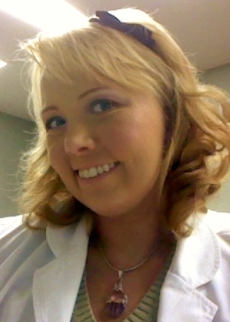Let’s face it… not being able to hear well is embarrassing. I should know, I’m hearing impaired and have been my whole life. Between not hearing someone at all, asking someone to repeat (perhaps even a 2nd or 3rd time) because I didn’t catch what they said, or answering incorrectly to something I misheard, I have spent a good portion of my life feeling embarrassed by my hearing.
Hearing loss affects us socially, with other people noticing our impairment way more than we do. How do you know if you’re not hearing a sound you are supposed to hear? You don’t. Not until someone else points it out, and if that someone else isn’t there… right over your head it goes. Funny thing it, it just sounds normal to us, because we don’t really have conscious awareness of what we’re missing.
Our family and friends aren’t shy though. They tell us that they notice our problem. How embarrassing is it to have friends and family members tell you repeatedly that you need to get your hearing checked? Or when they complain about the volume and proceed to turn down the TV until you can’t follow what’s going on? Or to just get fed up trying to talk to you, saying, “Forget it, it wasn’t important anyway?”
Embarrassment is an emotion most humans want to avoid at all costs. This explains why hearing impairment so often leads to social isolation. We’d rather stay at home by ourselves than risk the embarrassment that occurs when we mishear others. Social isolation is a huge risk factor in many health conditions, from mental decline and dementia, to depression and anxiety, to heart health and more. So it’s no wonder that hearing loss is well known for making all these conditions worse.
Even worse than the problems of hearing loss were the big clunky hearing aids of the past, drawing attention to how we’re different than everyone else. They were large and visible. They would squeal loudly, drawing unwanted attention. They had to be fiddled with all the time, and never did sound great. Technological limitations of the past made hearing aids a less than ideal solution to a complex problem and have resulted in a number of hearing aid myths that prevent people from getting hearing help today.
Fortunately, both the technology and our understanding of hearing loss have taken leaps forward. We know better than ever how to help provide clearer, more understandable sound for even severe hearing losses. We have technology that is incredibly discreet and no longer squeals. We have better support accessories to help our hearing aids connect with other technologies around us, and help solve the problems presented in even difficult listening situations.
My hearing loss doesn’t embarrass me anymore, because with my A2 Platinum Power Solution from Audibel, I can hear. It’s not the same as having normal hearing, and I still do miss things sometimes, but compared to life without my hearing aid, you couldn’t fight me to get it away from me now. It is so much better that most people don’t even believe me when I tell them I have hearing loss, until I take out my hearing aid and show them.
My hearing aid changed my life so completely for the better that I became a hearing specialist and I dedicated my career to helping other people with their hearing challenges. I know what it’s like not to hear well, and I know what better hearing sounds like. I’ll never go back.
When you are ready to get help with your hearing, give Audibel a call. With 9 offices in Central Illinois, staffed with compassionate and skilled hearing care professionals, you will experience the highest quality in hearing health care. From your very first visit to a life time of after care, Audibel is here for your hearing needs.
Give us a call for a complimentary hearing examination. We can see if it’s just wax causing your problem, if you need to see a doctor, or if it is something a hearing aid may be able to help. We will find out about your lifestyle and common sound environments you get in to. We will make a recommendation that will fit your hearing loss, your lifestyle and your budget… AND you’ll get 6 full weeks to try it out with a 100% money back guarantee. There is no risk to find out if better hearing will improve your life. With today’s advanced hearing solutions, you too can eliminate the embarrassment of hearing loss from your life!
We can’t wait to hear from you!
Sincerely,
Alina Phoenix, HIS
PS… Audibel has offices all around the country. If you’re located somewhere other than Central Illinois and want to find the Audibel nearest you, visit http://www.Audibel.com and enter your zip code to find your closest Audibel professional.


